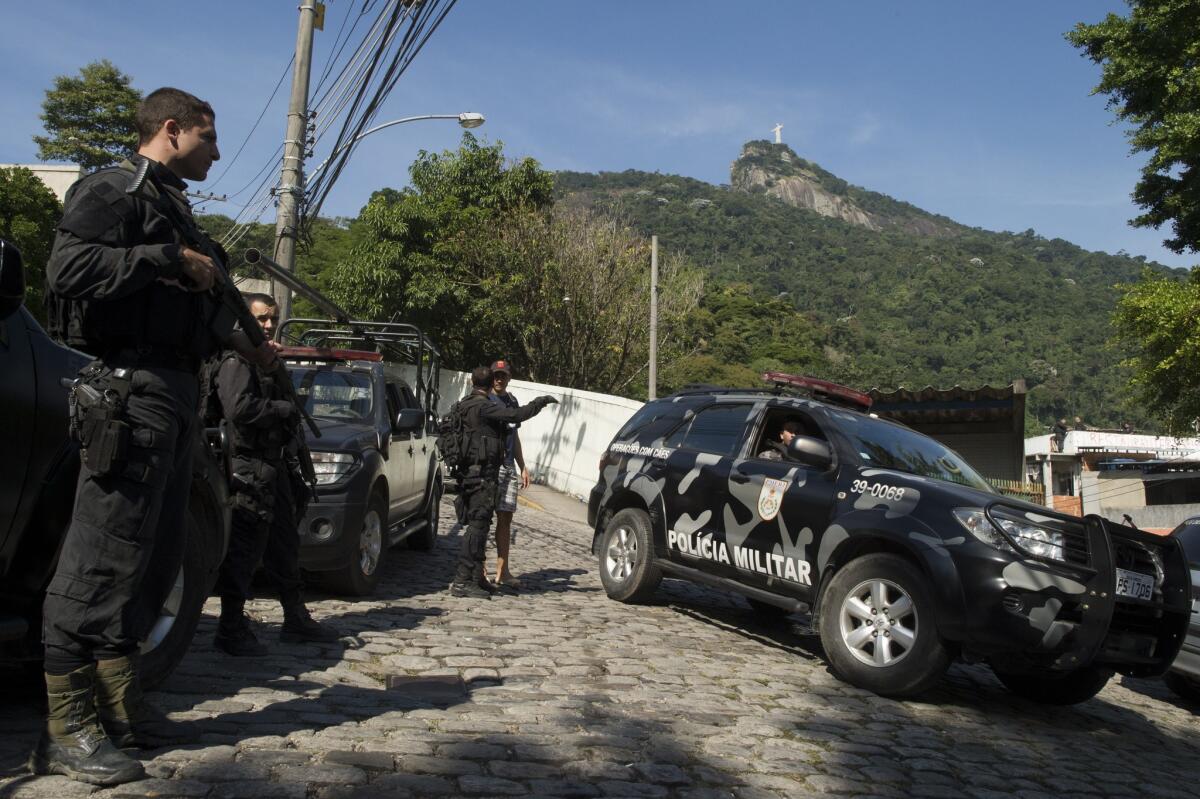As goes crime in Rio, so goes bulletproofing

- Share via
RIO DE JANEIRO — As crime statistics go, this one is iron-clad.
Wealthy residents of Rio de Janeiro have been buying fewer bulletproof cars as violent crime has decreased and shootouts between gangs and police have become less prominent, at least in the upper-crust neighborhoods where people can afford bulletproofing.
For years, some wealthy cariocas, as locals are called, were in the habit of paying an average of $24,000 to add armoring to their cars, making them theoretically immune to carjackings or stray bullets.
But in 2012, only 670 such cars were sold in Rio, fewer than half the number sold five years ago, says the Brazilian Armor Assn.
The decrease coincides with the city’s successful “pacification” program, which has expelled drug gangs and set up police installations in favelas, Rio’s slums, especially in those near wealthy or tourist areas. Rio will host the 2014 World Cup and the 2016 Olympics and is eager to gain the upper hand on crime by then.
“The occupations of the favelas by the Police Pacification Units has brought a sensation of greater safety to cariocas over the years,” says a spokesman for the Brazilian Armor Assn. “Feeling safer, they’re looking less and less for armoring.”
The trend to shun armored cars is not nationwide. Residents of nearby Sao Paulo, South America’s largest city — where some of the super-wealthy are in the habit of zipping around in helicopters to avoid both crime and traffic below — increased their purchases of armored cars to 6,036 last year, despite a long-term reduction in crime there too.
Ignácio Cano, a sociologist at the State University of Rio de Janeiro who studies crime, questioned the need for anyone to have an armored car.
Well, almost anyone.
“Armored cars are for the president,” the Rio paper O Globo quoted him as saying. “Those who need one are her, and the governor. That’s it.”
ALSO:
Botswana president grazed by cheetah’s claw in ‘freak accident’
Myanmar panel proposes measures to ease ethnic tensions
Mexican journalists march to protest violence against reporters
More to Read
Sign up for Essential California
The most important California stories and recommendations in your inbox every morning.
You may occasionally receive promotional content from the Los Angeles Times.










